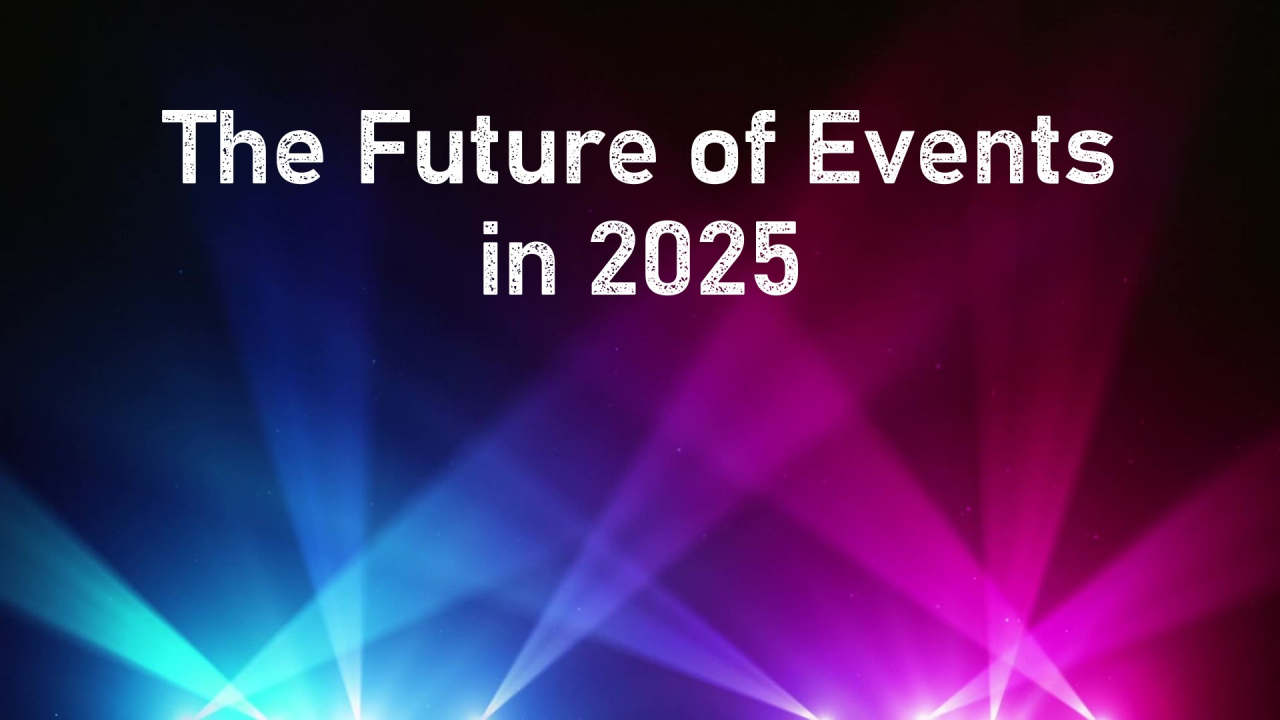
Top Event Trends for 2025: What B2B Organisers Need to Know
Top Event Trends for 2025: What B2B Organisers Need to Know
As we kick off 2025, the events industry continues to evolve, shaped by new technologies, shifting audience expectations, and a greater focus on sustainability. For businesses planning conferences, product launches, or team-building events, understanding the trends shaping the industry is key to delivering meaningful and impactful experiences. Here’s a look at the top trends driving B2B events this year.
- Sustainability is Non-Negotiable
Sustainability has gone from a nice-to-have to a must-have for B2B events. Clients and attendees are increasingly expecting eco-conscious practices, whether that’s reducing single-use plastics, offering locally sourced catering, or using digital materials instead of printed ones. Carbon-neutral venues and tools to calculate an event’s environmental impact are becoming standard, allowing organisations to showcase their commitment to sustainability.
- AI-Enhanced Personalisation
Artificial intelligence is revolutionising the way B2B events are designed. AI tools can generate personalised agendas, suggest relevant sessions, and even match attendees for networking opportunities. This tailored approach helps attendees feel valued and ensures they get the most out of the event, which is crucial for fostering long-term business relationships.
- Hybrid Events Are the New Normal
Hybrid events – blending in-person and online experiences – continue to thrive. For B2B organisers, this means creating seamless engagement across both formats. Tools like interactive live streams, breakout rooms for virtual attendees, and real-time polling ensure remote participants feel involved. Hybrid formats also enable businesses to extend their reach globally while catering to varying travel restrictions and time zones.
- Data-Driven Decision Making
2025 is the year of smarter event planning, thanks to data. Event tech platforms now offer deeper insights into attendee behaviour, preferences, and engagement. From tracking session attendance to analysing feedback surveys, organisers can use this data to refine their events and deliver personalised experiences. Expect predictive analytics to play a bigger role in shaping everything from agendas to marketing strategies.
- Prioritising Wellness and Balance
With many professionals juggling packed schedules, events that prioritise attendee wellbeing stand out. Incorporating wellness breaks, mindfulness sessions, or healthy catering options can significantly improve the experience. For example, dedicated networking lounges or quiet zones give participants space to connect or recharge between sessions. These thoughtful touches can elevate an event from “good” to truly memorable.
- Smaller, High-Impact Gatherings
There’s a growing appetite for smaller, more focused B2B events. Rather than sprawling expos, businesses are hosting intimate gatherings like roundtables, VIP dinners, or niche industry meetups. These settings encourage deeper conversations and foster meaningful relationships, making them ideal for B2B objectives like deal-making and knowledge-sharing.
- Immersive and Experiential Formats
Interactivity isn’t just for consumer-facing events. B2B organisers are increasingly using immersive experiences to keep attendees engaged. Think live product demonstrations with augmented reality, interactive breakout sessions, or collaborative problem-solving workshops. These approaches leave a stronger impression than traditional presentations and create opportunities for hands-on learning.
- Inclusivity as a Business Standard
Inclusivity is no longer optional – it’s a requirement. B2B events in 2025 are focusing on accessibility in all aspects, from venues and session formats to marketing materials. This includes captioned live streams, diverse speaker line-ups, and catering to dietary preferences. Events that prioritise inclusivity not only broaden their appeal but also strengthen their brand image.
Get in touch for more information marketing@cigroup.co.uk
